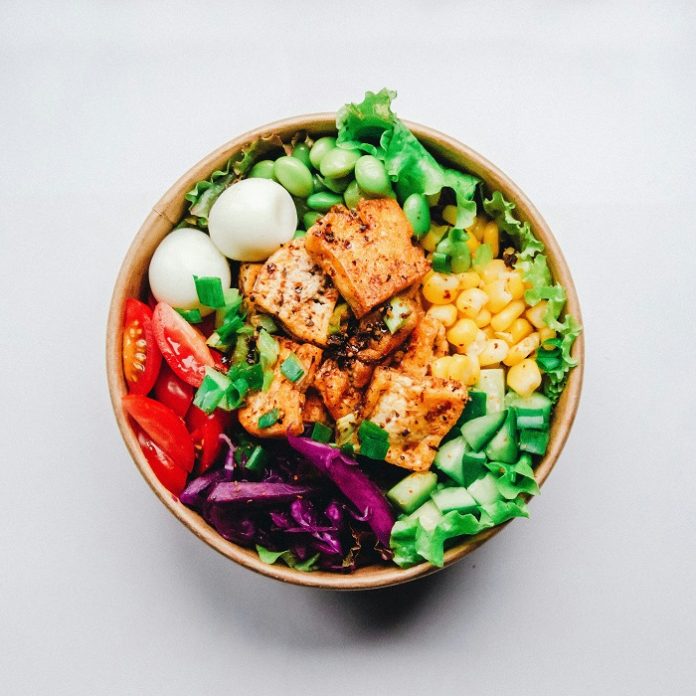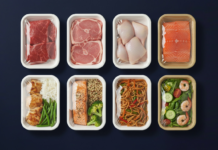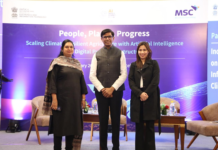Ahead of Union Budget 2025, which will be presented by finance minister Nirmala Sitharaman on 1 February, the food and beverage industry has put forward its suggestions and demands.
Cassio Simoes, managing director, Tetra Pak South Asia, gave his suggestions on policy measures that could significantly impact India’s food and beverage industry.
“As the Union Budget 2025 approaches, we look forward to policy measures that drive sustainability, innovation, and growth in India’s food and beverage industry. Future-ready solutions deserve recognition and support—one such area is aligning GST on products like long-life UHT milk with basic pouch milk to enhance affordability and nutrition access. UHT milk ensures a safe, long-lasting supply across urban and rural areas, reducing cold chain dependency and minimizing wastage,” he said.
Simoes said the benefits of quality and access are greater than that of pouch milk and should be accorded due consideration. “Additionally, streamlining clearances for food processing equipment exports, simplifying raw material import regulations, and incentivizing sustainable packaging will strengthen India’s global competitiveness. A collaborative industry-government approach can build a resilient, future-ready ecosystem that ensures food safety, security, and sustainability.”
Simranjeet Singh, director, CYK Hospitalities, expects reforms for innovation in the budget. “For start-ups and food and beverage (F&B) sectors, there is also great hope for simplified taxation, namely GST rate cuts on small eateries and essentials-those will ease financial stress. A very strong push has been made towards subsidies on packaging that preserve the environment so that food becomes scarce, aligning it to the perceptions of global sustainability. Increased budgetary support to food processing facilities might as well drive off multiple rural jobs and boost exports. Start-ups are also demanding continued tax exemptions and the removal of angel taxes so as to attract more funding. Investments into Tier 2 and Tier 3 cities will benefit from policy environments that promote digital ecosystems to stimulate innovation, especially in agri-tech, health-tech and green-tech.”
Nidhi Singh, co-founder, Samosa Singh says they look forward to reforms that may vicariously fuel the growth of startups. “Swiftly approved policies that would potentially simplify taxation, and promote sustainable business practices can act as promoters for escalating startups like ours. F&B sector being in the focus, stimuli for local sourcing, reduced taxes on essential supplies, facilitated support for cold-chain infrastructure, can result in significantly impacting operational efficiency and product quality in the constructive manner. We hope that implementation of this budget would make provisions for a far more resilient and thriving startup ecosystem, and be the breath of prerequisite fresh air.”
Vikesh Shah, founder, 99 Pancakes, hopes the Union Budget 2025 addresses key grown enablers for our F&B Industry. “This sector has been brawling with inflating operational & input costs. With a reduction in GST on dining services along with a tax alleviation on sustainability packaging could be of crucial assistance. Scalability & Market Expansion could be the necessary impact driven from adopting advanced kitchen technologies leading to operational efficiency. Such robust measures accredit brands like ours to continue striving towards innovation, amplifying customer experience & contributing to our country’s economic momentum.”
On the other hand, Dhruv Taneja, founder and CEO, Matchlog Solutions a prominent industry leader in the logistics and ecosystem, which is crucial for any industry, says the Union Budget 2025 presents an unparalleled opportunity to address India’s high logistics costs, which currently stand at 14% of GDP, compared to the global benchmark of 8–10%. “While infrastructure development has been a priority, the focus now needs to shift towards efficiency-driven policies. We urge the government to introduce fiscal incentives for logistics startups innovating in route optimization, multimodal connectivity, and empty container reduction. Tax rebates for businesses adopting AI-powered supply chain solutions and green technologies, such as EVs and alternative fuels, will accelerate sustainability in logistics.”
Additionally, the implementation of a unified National Logistics Policy should include targeted investments in digital freight corridors and grants for startups integrating blockchain and IoT for real-time tracking and transparency, he said. “Streamlining regulatory approvals across states for freight movement will also reduce bottlenecks and improve turnaround times. At MatchLog, our mission is to minimize inefficiencies like empty container trips, and we have seen how digitalization can reduce costs and carbon emissions significantly. A transformative budget that champions tech adoption and sustainable practices will not only enhance India’s trade competitiveness but also pave the way for a resilient and green logistics ecosystem.”
Gaurav Grover, CEO, ofi India, says the industry has reasons to be optimistic about this year’s Union Budget and hopes it builds on the positive steps from last year. “We are expecting that this budget will prioritize boosting high-yielding, climate-resilient crops and natural farming practices. These measures can go a long way in supporting the government allocation of ₹1.52 lakh crore to agriculture and allied sectors as announced in the previous budget.”
“As we look ahead to the upcoming Union Budget, the food processing industry has high hopes for measures that can enhance ease of doing business. Simplified tax processes, reduced complexities in regulations, and faster GST refunds could be game changers in the food ingredient manufacturing sector, enabling smoother operations, and enhancing competitiveness. Better infrastructure—like improved logistics, cold chain facilities, and connectivity—would also go a long way in cutting transportation costs, and ensuring products move efficiently across the supply chain.”
With a growing focus on increasing disposable income for the middle class, he hopes for initiatives that drive growth in domestic demand, which will fuel opportunities for high-quality, processed food products. “These initiatives have the potential to bring multiple benefits to the sector: lower raw material costs, develop new market opportunities, improve access to credit, extend product shelf life, and even facilitate exports. The food and beverage ecosystem has much to gain if these priorities are addressed.”
IndiFoodBev — authentic, impactful and influential
An English-language food and beverage processing and packaging industry B2B platform in print and web, IndiFoodBev is in its third year of publication. It is said that the Indian food and beverage industries represent approximately US$ 900 billion in revenues which implies more than 20% of the country’s GDP. Eliminating the wastage on the farmside can help to deliver more protein to a higher number of the population apart from generating sizable exports. The savings in soil, seeds, water, fertilizer, energy and ultimately food and nutrition could be the most immense contribution that country is poised to make to the moderation of climate change.
To improve your marketing and grow sales to the food and beverage processing and packaging industry, talk to us. Our research and consulting company IppStar [www.ippstar.org] can assess your potential and addressable markets in light of the competition. We can discuss marketing, communication, and sales strategies for market entry and growth.
Suppliers and service providers with a strategy and budget for targeted marketing can discuss using our hybrid print, web, video, and social media channels to create brand recognition linked to market relevance. Our technical writers are ready to meet you and your customers for content.
The second largest producer of fruit and vegetables in the world is continuously expanding processing capacities and delivery systems with appropriate innovative technologies. We cover product and consumer trends, nutrition, processing, research, equipment and packaging from farm to thali. Get our 2025 media kit and recalibrate your role in this dynamic market. Enhance your visibility and relevance to existing markets and turn potential customers into conversations. Ask for a sample copy of our bi-monthly in print or our weekly IndiFoodBev eZine each Wednesday.
For editorial info@ippgroup.in — for advertisement ads1@ippgroup.in and for subscriptions subscription@ippgroup.in
Naresh Khanna – 10 February 2025
Subscribe Now











